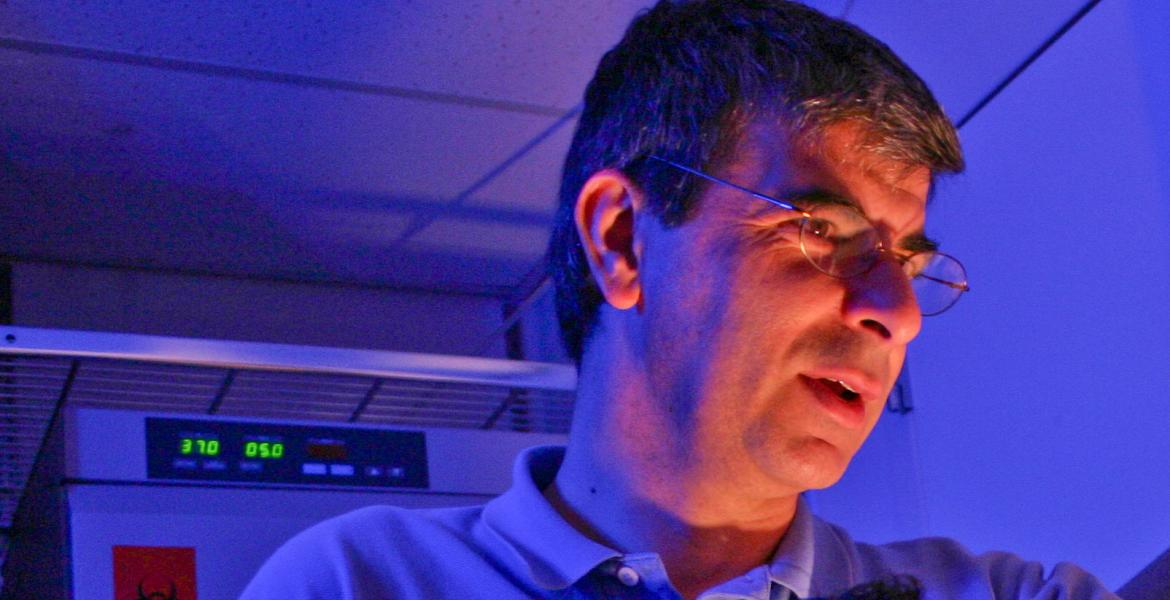Deymier Accepts Position as Head of New School of Sustainable Engineered Systems
The School of Sustainable Engineered Systems, or SSES, unites the departments of Chemical and Environmental Engineering, Civil Engineering and Engineering Mechanics, Materials Science and Engineering, Mining and Geological Engineering, and Systems and Industrial Engineering.
Deymier has been associate head of the Department of Materials Science and Engineering since 2001, and is on the faculty of the BIO5 Institute, the applied mathematics graduate interdisciplinary program, and the biomedical engineering program. He joined the Department of Materials Science and Engineering in 1985 as an assistant professor, becoming associate professor in 1991 and full professor in 1997.
“I am honored to have been chosen to serve the recently formed School of Sustainable Engineered Systems as its first director,” Deymier said. “This is a unique opportunity to establish a center of excellence in interdisciplinary research and education in the College of Engineering.”
Deymier has research collaborators across the UA campus as well as national and international partners, and he intends to bring that local to international scope to the new school. “With the help of the SSES leadership, faculty, staff and students, I hope to bring to life a locally, nationally and internationally recognized school,” he said.
“I want this school to gain a reputation rooted in excellence in research, scholarship and education,” Deymier said. “A forward-looking SSES will become a leader in proposing creative sustainable solutions to current problems which will impact and influence the basic human and societal needs in energy and environment, resources, health care, transportation and infrastructure, communication and information technology.”
Jeff Goldberg, dean of the College of Engineering, said: “Pierre’s strengths are in team building and running a broad interdisciplinary research program. He is especially suited to the leadership tasks required in this transition time for the College and I look forward to working with him.”
Goldberg added that Deymier will be charged with leading the research efforts of the SSES, which will include building teams for large projects, heading the SSES faculty research committee, and marketing the school’s research portfolio to prospective sponsors. In addition, Deymier will determine what faculty, staff, and facilities the school needs to improve its research capabilities and competitiveness.
Deymier got a doctorate in ceramics from MIT in 1985, and an engineer’s degree in materials science in 1982 from Institut des Sciences de l’Ingénieur, Université des Sciences et Techniques du Languedoc, Montpellier, France.
His research interests lie in the application of theory, modeling, and simulation to solving important problems in the science, engineering, and technology of materials. These areas of research include materials whose function derives from their size, such as nanomaterials; or structure, such as metamaterials; and materials with biological functionality or made of living matter, such as vitamaterials.
The SSES will bring together more than 50 faculty members from five engineering departments and draw on expertise throughout the campus. It will focus on critical linkages between systems in infrastructure, resources, energy and environment. The school will build partnerships with similar schools and work with industry to enhance the economic base in Arizona.
Jeff Goldberg, dean of the College of Engineering, said: “In the Southwest, the need to address competing demands related to environmental preservation, quality of life, and economic growth has never been greater. These issues must be addressed regionally at the community scale and at the individual level to ensure a thriving economic future.”
Departments throughout the College of Engineering are already doing considerable research in these areas, and the SSES will build bridges between these departments and research areas. Specifically, the SSES has been formed to foster, coordinate and expand research initiatives that address the broad range of opportunities and problems arising in the Southwest due to:
- The abundance of solar energy that could reduce the cost of imported energy.
- A shortage in potable water that could limit population growth, deter economic expansion, and threaten public health and safety.
- Environmental degradation, such as the increasing levels of groundwater salinity. Management of the salts imported through CAP water, for example, will be a major challenge to growth; on the other hand, there are exciting potential business opportunities for processing these materials into valuable products.
- The existence of a strong, but threatened, high-tech manufacturing industry based primarily on semiconductor devices. The long-term environmental sustainability of this industry continues to be a fundamental concern in Arizona.
- Rapid growth and development resulting in a need for new transportation, water and power infrastructure, as well as maintaining existing roadways, bridges and pipelines
- Continued drawdown of aquifers has resulted in subsidence and earth fissure that have significant economic and public safety issues.


